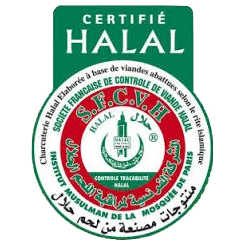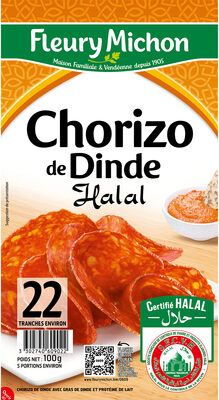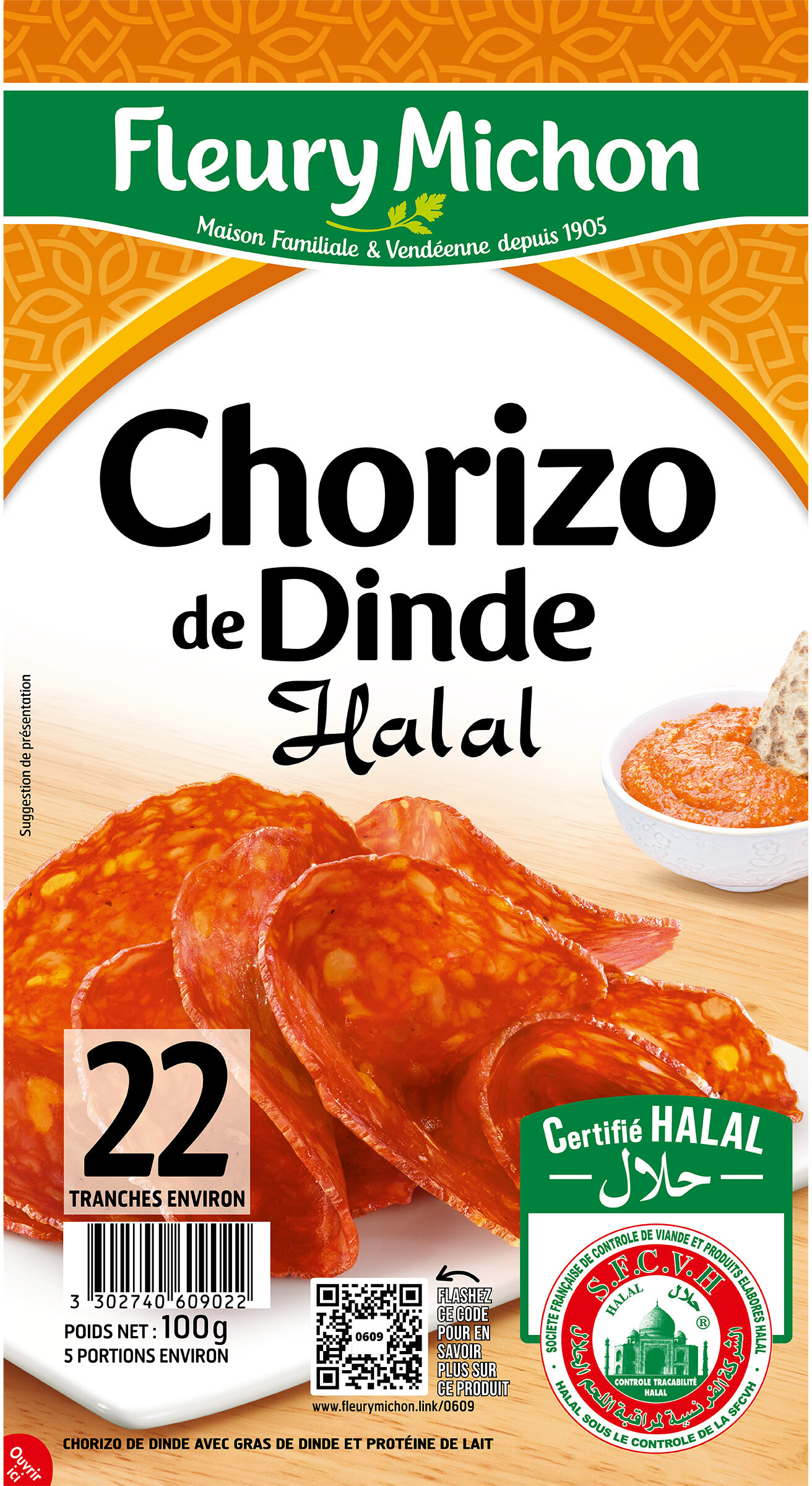Chorizo de Dinde - Halal - Fleury Michon - 100 g
This product page is not complete. You can help to complete it by editing it and adding more data from the photos we have, or by taking more photos using the app for Android or iPhone/iPad. Thank you!
×
Barcode: 3302740609022 (EAN / EAN-13)
Quantity: 100 g
Brands: Fleury Michon
Categories: Meats and their products, Meats, Prepared meats, Poultries, Cured sausages, Turkey and its products, Turkeys, Chorizo, fr:Chorizos de dinde
Labels, certifications, awards:
No gluten, Halal, Nutriscore, Nutriscore Grade D, fr:Société Française de Contrôle de Viande Halal

Origin of ingredients: European Union
Manufacturing or processing places: Espagne
Traceability code: ES 10.01782/GE CE
Countries where sold: France
Matching with your preferences
Environment
Carbon footprint
Packaging
Transportation
Report a problem
Data sources
Product added on by fleury-michon
Last edit of product page on by kiliweb.
Product page also edited by ayecptn, camillelrss, ecoscore-impact-estimator, inf, moon-rabbit, openfoodfacts-contributors, packbot, roboto-app, sebleouf.
Last check of product page on by sebleouf.











